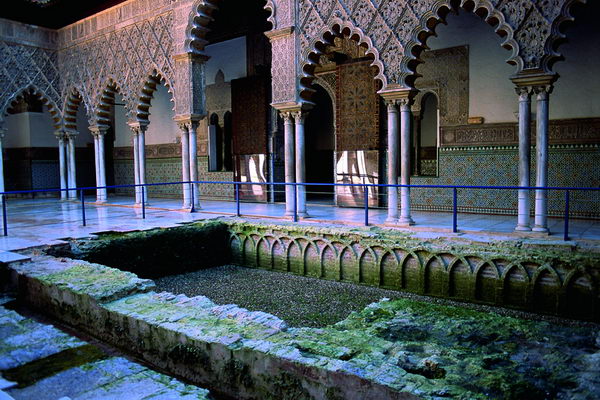Articles, Communications
Qantara: a heritage programme
Article author: FUNCI
Date of publication of the article: 20110624
Year of publication: 2011
The Qantara project is part of the Euromed Heritage programme, which hopes to contribute to mutual understanding and dialogue between Mediterranean cultures by highlighting their cultural heritage. It aims to encourage intercultural dialogue by supporting the preservation and promotion of the shared historical and cultural heritage of the Euromed region, through human, scientific and technological exchanges.
The Euromed Heritage IV (2008-2011) programme focuses on education and access to knowledge of this cultural heritage, as well as its appropriation by the populations themselves.
At the Heart of the Future of Mediterranean Civilisation
The Qantara Project is a reflection of the Institut du Monde Arabe in its pursuit of openness and peace, in its modern and multimedia format that targets specialists and non-specialists alike, and in terms of its organisation, which unites several partner countries – Algeria, France, Jordan, Lebanon, Morocco, Tunisia, and Spain – as well as a guest country, Egypt. Qantara’s goal is to build or rather consolidate the bridge between the North and South, and the East and West of the Mediterranean.
First of all, it is a political project that clearly targets Mediterranean identity as a unifying and interdependent identity. Often torn apart throughout history, the Mediterranean has never represented a frontier but rather an entity that connects multiple civilisations and cultures in time and space: it remains the melting pot of our unity, based on values that are far more important than any apparent dissensions. It is in refusing to consider these dissensions as a fatality that all of the project’s partners and ourselves are seeking to establish and enhance our Mediterranean identity, in partnership with the European Union. During the centuries that concern the Qantara Project – from the end of late Antiquity and the advent of Islam, to the 19th century and the end of the Ottoman Empire – values that incorporated the contributions of Antiquity, particularly its philosophical foundations, were disseminated through the three revealed religions. The Mediterranean has always been nourished by such diversity and, even in times of war, has never stopped encouraging exchanges and the sharing of material goods, such as fabrics, gold and spices, as well as spiritual values, knowledge, expertise and science.
The project’s format enables the circulation of objects, art and ideas to be fully appreciated and their origins, often mixed, to be analysed. Our scientific committee, composed of representatives from both shores of the Mediterranean, has devoted all of its knowledge to the project. Three principal types of media have been chosen for distribution purposes so that the subject remains accessible to everyone: an Internet site containing the database of a thousand architectural works and objects of cultural heritage that can be consulted on two levels (one for the general public and another for specialists), one multimedia exhibition (in actual fact, seven exhibitions will take place simultaneously in seven countries), and finally, the book.
All of this media will be available in four languages: Arabic, English, Spanish and French.
The organisation of Qantara is, in itself, a mobilising force. For it involves nearly 4 years of working together with partner countries towards a common goal. Of course, these eight countries do not constitute the entire Mediterranean, far from it. But those absent from the organisation will not be absent from the content in that they house, protect and confer value on part of the Mediterranean heritage and project it into the present. Italy, Greece, the Balkans, Turkey and Syria are thus represented and their heritages associated with this body of work.
With Qantara, we find ourselves at the centre of a project focused on civilisation, based on a bountiful past and incarnating a certain idea of the Mediterranean: a Mediterranean that is proud and happy about its diversity, flanked by Europe, Africa and the Near East and capable of positioning itself as a leader of new world entities.
Dominique Baudis
President of the Institut du monde arabe


